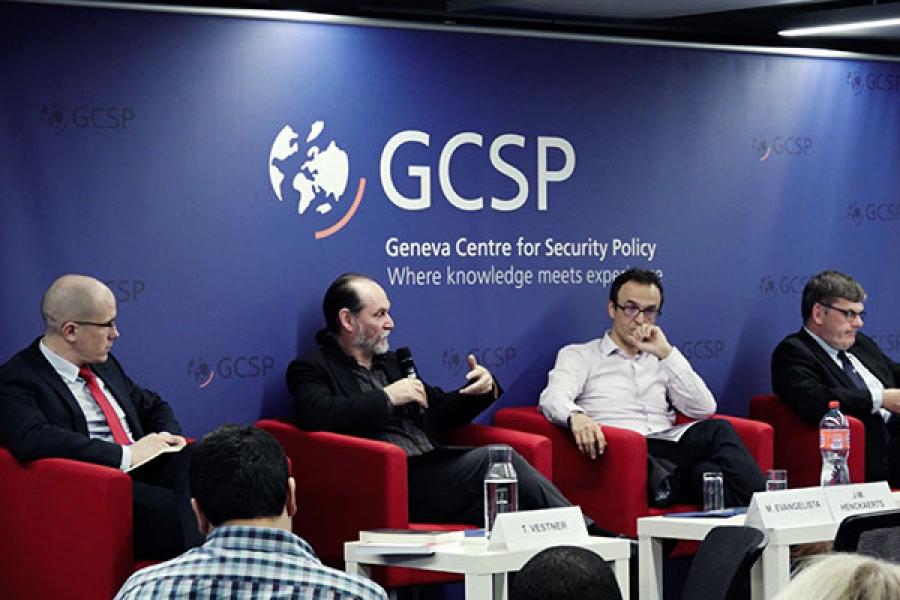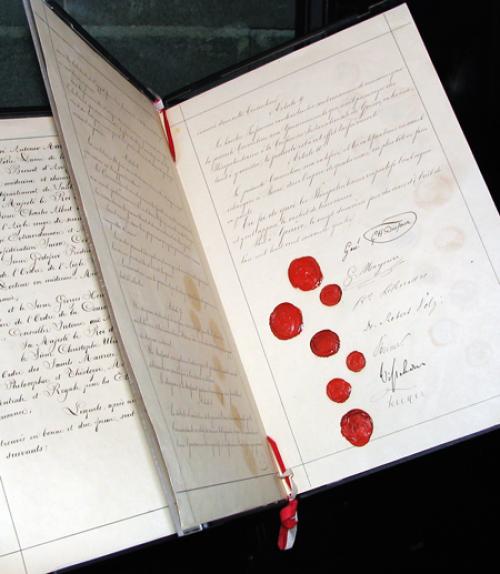The first international event marking the 70th anniversary of the 1949 Geneva Conventions, held Feb. 25 at the Geneva Centre for Security Policy in Switzerland, featured a panel discussion with Matthew Evangelista, the President White Professor of History and Political Science in the Department of Government in the College of Arts & Sciences. The panel included prominent legal and military specialists commenting on the question posed by the book Evangelista co-edited with Nina Tannenwald, “Do the Geneva Conventions Matter?” (Oxford University Press).
The book project originated in a workshop at Cornell’s Judith Reppy Institute for Peace and Conflict Studies, funded by a seed grant from the Mario Einaudi Center for International Studies. The book examined hard cases for compliance with the Geneva Conventions, which are the foundation of international humanitarian law and the laws of war. These cases involved terrorism and counterinsurgency wars, where regular armed forces could not expect their enemies to reciprocate adherence to the laws of war.
“We anticipated that training and discipline might have produced a kind of internalization of the norms of restraint in warfare among soldiers and officers, but our authors found less of that than we expected. We also found frequent instances when professional military officers were ready to obey the law, but their political superiors overrode them, leading, for example to abuse of prisoners,” said Evangelista. “Our findings left us a bit pessimistic about the fate of the 1949 Geneva Conventions seventy years after they were drafted.”
Panelists at the Geneva Centre for Security Policy in Switzerland; Matthew Evangelista is second from left.
The anniversary panel included lawyers and military professionals working with the International Committee of the Red Cross, the organization that oversees the Geneva Conventions. “They are committed to maintaining the law, even in the face of obvious violations these days in places such as Syria, Yemen, and Ukraine,” said Evangelista.
The panel also examined the impact of the Conventions beyond the battlefield. One example offered was that of Nelson Mandela, imprisoned for 18 years on Robben Island in apartheid South Africa. “He was able to secure an improvement in his conditions by appealing to the Geneva Conventions’ provisions for prisoners of war, even though they did not technically apply to his situation,” Evangelista said. “So I left feeling more optimistic about the role of the Geneva Conventions on their seventieth anniversary than when I arrived.”
Image: Original document of the first Geneva Convention, 1864. Credit: Kevin Quinn
This article also appeared in the Cornell Chronicle.





